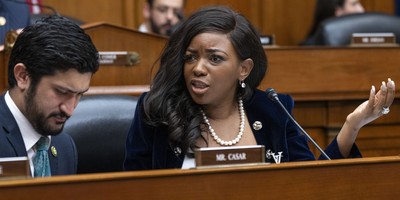For nearly 20 years, the nursing profession has resided atop Gallup’s most trusted professionals list. Hardly anyone would dispute the high ratings, and most are contented to think that number means all is well with those operating in the profession. It’s not. Nurse practitioners (NPs) in particular, the unsung heroes of America’s healthcare workforce, routinely face unnecessary barriers to carrying out their jobs by one of the most notoriously cumbersome of all government functions: regulation.
In 28 states these outdated regulations have exacerbated the healthcare provider shortage and needlessly put patients at a severe disadvantage when it comes to accessing care. The public is supportive of reasonable, transparent, and effective regulation of the health care industry and its workforce, especially when it comes to patient safety, but they’re not for the disgusting predatory nature of special interest groups asserting influence and favoring profits at the expense of patients.
These physician-backed groups seek only to protect a too often overlooked or dismissed profit schemes whereby doctors line their pockets under the letter of the law without treating patients.
And though we’re still closer to the 2018 midterms than we are to Election Day 2020, lawmakers at the state and federal levels axiomatically fail to reign-in these practices and enact right-sized laws which keep pace with patient demand and technological advancements.
Increasingly, physician groups backed by organized medicine needlessly attack NPs with thinly veiled fearmongering tactics intended to sow distrust with patients. In the name of unarticulated “patient protection” they seek to limit the scope of practice for NPs and others by working against legislation that would empower NPs to provide care to the fullest extent of their education, training, and licensure.
Recommended
In the majority of states, these groups aggressively lobby lawmakers to ensure profit mechanisms called collaborative agreements maintain legal frameworks by which physicians profit from NPs’ practices, even though the physicians may never actually see, treat, or even meet the patients NPs provide care for.
Patients should not have to pay for the services of a provider they never see – and government shouldn’t be in the business of allowing outdated regulations to negatively impact patients’ pocketbooks and diminish their ability to access affordable primary care services.
With over a quarter million NPs licensed to practice across the country, patients and consequently markets have responded to the quality and convenience of care NPs provide. And amid massive provider shortages, NPs have stepped up to bridge the gap with an unparalleled commitment to go where the need is greatest. The same cannot be said for their physician colleagues.
When physicians increasingly favor more comfortable and specialized settings, NPs like those operating the Health Wagon in rural Appalachia are finding ways to provide families with primary care services despite well-funded, anticompetitive, and ultimately anti-patient, special interest groups working against their ability to treat patients.
They’re but one of thousands of examples where NPs have risen to the occasion and transformed America’s health care workforce for the better. The good news is that 22 states, the nation’s capital and two U.S. territories recognize the value of NPs and have modernized their scope of practice laws allowing NPs to provide affordable and high-quality health care for all patients from rural to urban areas. In the short term, NPs may very well be the panacea to primary care we’ve been looking for.
In fact, eight of the top ten healthiest states have eliminated outdated regulations on NPs while the least healthy states have not yet embraced a favorable and more effective regulatory environment.
The Trump Administration also acknowledges the negative impact regulations of this kind have on the fairness and competitiveness of health care markets. Three agencies recently published a report describing how the removal of these regulatory barriers, among other recommendations, can make an immediate impact on increasing access to preventative and primary care.
At a time when the ideological struggle for the illusive, and so far unrealistic, comprehensive overhaul of America’s health care system has led to perpetual gridlock and inaction, the remaining 28 states with outdated regulations on NPs should heed the facts and undeniable successes of neighboring states and immediately move to modernize their scope of practice laws.
A projected surge in the number of NPs entering the workforce, high demand for the most accessible, affordable, and convenient providers will drive patients to further question if their representatives have enacted the obvious and meaningful reforms allowing them to see the provider of their choice – or if they’re more committed to leveraging the heavy hand of government to stymie intensely competitive health care markets and maintaining a deceptive profit scheme albeit government-endorsed.
























Join the conversation as a VIP Member